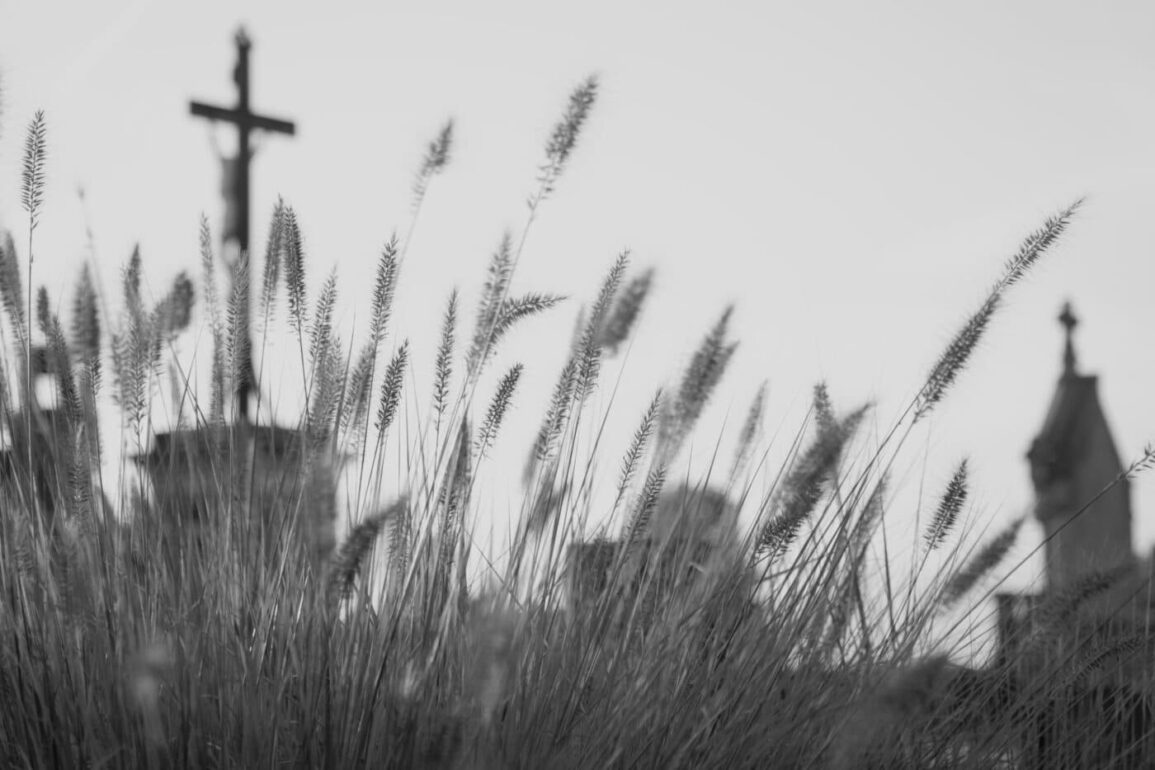The month of November is a propitious time to evoke our deceased. The Catechism of the Catholic Church quotes St. John Chrysostom in a very consoling homily in which he speaks of prayer for the dead: “Let us bring them succor and commemorate them. If the sons of Job were purified by the sacrifice of their father (cf. Jb 1:5), why should we doubt that our offerings for the dead bring them some consolation […] Let us not hesitate, then, to help those who have departed and to offer our prayers for them” (In epistulam I ad Corinthios homilia 41, 5).
The reverence due to the past, to death itself, and indeed to those who gave us life, no matter how badly they did it, seems to be broken today when we look back on what they did and blame them for our fate.
A practice of dubious scientific validity is being imposed where the past is evoked in order to discover the origin of present ills. Traumas, facts, and anecdotes are discovered that show that our condition as a frustrated person has its origin in those events hidden in our memory and which are brought to light by these practices of conscious or unconscious remembrance.
It must be said that not infrequently people who participate in these events not only do not advance in emotional well-being but also lose the support they once had in the history of their past. That father, mother, or grandfather becomes a reference point in my personal history, a disturber of my present.
It has come to my attention that these practices are even carried out in Catholic churches, which also tend to carry out “paranormal” practices such as the famous healing masses, where the phenomenological prevails over the liturgical and theological.
But returning to the subject of evoking our progenitors or ancestors from trauma, we observe the change of paradigm that arises in our time with respect to the judgement or evaluation that we make of our deceased or non-departed elders.
One of the factors that changes is the epistemological, historical and temporal distance that was marked as something established between the living and the dead, parents and children, etc. It was what was commonly called respect. The distance was not only in time, placing everyone in their own century. Belonging to an era, to a specific world, implied the autonomy to reside in one’s own stage, world, era, eternity. Distance marked a space different from the present. Now this distance is broken. We judge, we think, we live, as if those who belonged to the inaccessible past were in our present.
Another no less absurd factor is to judge with the cultural parameters of the present moment what was done in the past. Parents understood that the best thing for their children was to deprive them of certain influences or to inflict certain punishments in order to bend their natures. The starting point, for example, was the inclination towards evil, the fruit of original sin. Rousseau’s theories of the goodness of the child had not yet taken hold.
Educating, being parents or teachers, is so complex that it is impossible to do it perfectly unless we idealize them away from what they really are. It is complex because it depends on a combination of a multitude of factors: genetic, environmental, cultural, economic, historical, pedagogical, psychological, medical, psychological and medical. There is no academic discipline that encompasses them all.
In addition to each factor that we can judge as negative, our best qualities may have emerged. Severe demands may have given rise to an anxious personality, but at the same time, a spirit of permanent struggle and self-improvement may have been forged. The subject is long and beyond the scope of this article.
Blaming one’s ancestors may be a simple defence mechanism in the face of a failed present.
Working on self-acceptance can be more productive than digging into the wounds of the past, whether discovered or undiscovered.
But above all, what is unfailingly therapeutic is forgiveness, which frees us from grudges, heals wounds, dignifies the person, and makes us like God who redeemed humanity, forgiving through his own son who gave himself up on the cross for our salvation. That is why the pious custom of praying an Our Father at the tomb of our deceased is the best tribute to them and the way to continue our life with a reconciled heart. “Forgive us our trespasses, as we forgive…”










